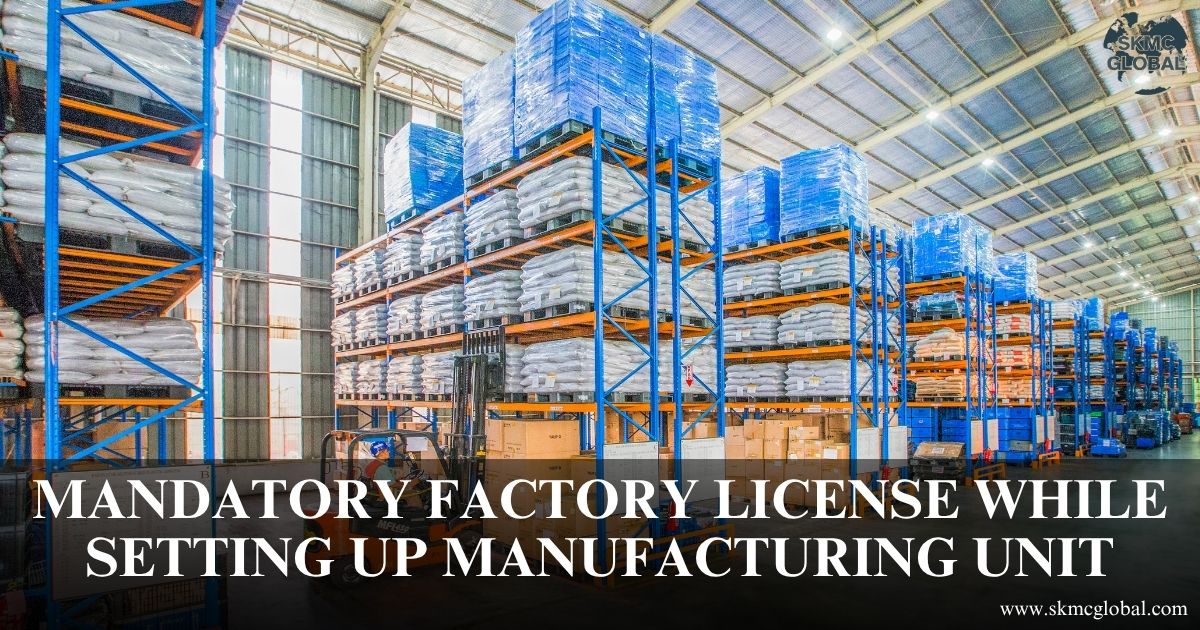
Setting up a manufacturing unit in India is a well-thought-out and profitable idea. But that also comes with the need to follow legal and regulatory frameworks. One of the most significant among them is the acquisition of a factory license. Be it a small-scale manufacturing unit or an industrial setup, following the Factories Act, 1948 is non-negotiable.
What Is a Factory License?
Factory license is a technical permission granted by the department of factory under the Factories Act, 1948, which focuses on labor welfare, work environment, and industrial safety. It stipulates requirements to ensure that a manufacturing unit has minimum legal standards for the safety, health, and well-being of the workers.
Every manufacturing unit utilizing power and having more than 10 people (or 20 people without power utilization) must register with the concerned department of factory first and then apply for a valid factory license before opening shop.
Why Factory License is Mandatory?
Factory license is not just an administrative procedure; it has a significant role in:
1. Ensuring Legal Compliance
Without a valid factory license, operating a manufacturing unit is against the law and invites huge fines or even orders to shut down by the factory department.
2. Worker Safety & Welfare
Factory license guarantees that the employer has provided arrangements for safety, health, ventilation, cleanliness, lighting, drinking water, toilets, and emergency doors as the rules of the Factories Act provide.
3. Risk Management
Registered factories are under regular supervision by the department of factory to ensure conformity, reducing instances of industrial accidents, legal cases, and business interruptions.
4. Business Credibility
Factory licensing helps in creating credibility for your manufacturing firm and is often asked for during interaction with customers, export houses, government tenders, or raising funds.
Legal Framework for Factory License
The legal basis of a factory license in India is the Factories Act, 1948, which is controlled by the Labour Department and regulated by the department of factory (or Factory Inspectorate).
Every state has its own Factory Rules under this central Act, and hence it is required to refer to local rules that are applicable to the site of your proposed manufacturing unit.
Below are important provisions of the Act:
- Chapter I: Definitions and Approval
- Chapter III: Health
- Chapter IV: Safety
- Chapter V: Welfare of Workers
- Chapter VI: Working Hours
- Chapter X: Penalties and Procedures
The department of factory is empowered to inspect the factory premises, enforce compliance, and prosecute for contravention.
Applicability of Factory License
Factory license shall be applicable to the following categories of units:
- Power-using manufacturing units with 10 or more workers.
- Non-power using units with 20 or more workers.
- Units with hazardous processes (even having fewer workers).
The moment your unit qualifies under the above requirements, it becomes mandatory to register with the department of factory and obtain a factory license.
Step-by-Step Factory License Process
The factory license process involves a series of steps in coordination with the department of factory and other regional authorities. Here's the breakdown:
1. Site Plan Approval
Before construction, an overall site and building plan must be filed with the department of factory for its approval. The plan must contain:
- Factory layout
- Electrical installations
- Machining position
- Safety features
- Fire exit and ventilation
It needs to be approved before construction.
2. Factory Registration
Once the building is constructed and machinery is installed, the unit must be registered with the department of factory. Documents needed are:
- Proof of occupier's identity and address
- Lease/rent agreement or land ownership proof
- Sanctioned building plan
- Flowchart of the manufacturing process
- Inventory of machinery
- Clearance from Pollution Control Board
3. Factory License Application
The factory license application may be completed on an online or offline platform, depending on the state. The following is required:
- Number of employees
- Installed capacity for power
- Information pertaining to hazardous processes, if any
- Date of commencement of commercial operations
- Once the documents are checked and verified, the department of factory will issue the license.
Documents Required for Factory License
Here is a comprehensive list of documents that are usually required for submitting an application for a factory license:
- Identity proof and photo of occupier
- Blueprint of factory layout
- List of machinery with HP details
- NOC of Fire Department
- Pollution Control Board Clearance
- Health & Safety Policy
- Workers' compensation insurance
- Certificate of auditor (optional in certain states)
- Receipt of payment of fee
Note: These may vary depending upon the state department of factory rules.
Validity and Renewal of Factory License
As per the Factories Act, 1948, there should be a license for each factory prior to starting production. However, the validity of a factory license varies depending upon the concerned State's Factory Rules and hence varies from state to state.
A factory license in most states is typically:
- 1 year valid as a rule by default.
- Renewable for 5 or even 10 years in some states.
- Aligned with the calendar year (on the 31st of December) in most cases.
Common Challenges faced in Factory License Application
While it is a mandatory compliance, factory license application procedure generally faces difficulties such as:
- Plan approval delays by the factory department
- Objections raised during inspection
- Unclear rules about factory layout compliance
- Missing NOCs or other departments' clearance
- Misclassification of workers or process
Due to such complexities, it is advisable to seek the services of compliance specialists or regulatory liaison specialists.
Role of Department of Factory
The factory department plays the enforcement role for:
- Factories Act compliance for ensuring
- Approval of factory building plan
- Granting of license and renewal
- Periodic inspections
- Inquiry into accidents and complaints
- Issuance of improvement or closure notices for default
The State Labour Commissioner or the Chief Inspector of Factories is in charge of the factory department, depending on the jurisdiction.
Cooperative relation with the factory department must be maintained to prevent any hassle.
Penalties for Non-Compliance
Non-obtention or non-renewal of factory license may lead to:
- Fine of ₹1,00,000
- 2 years' imprisonment for occupier
- Factory department closure of the factory
- Disconnection of utility supplies (electricity, water)
- Cancellation of other statutory registrations
Therefore, it is important to take the factory license as a priority compliance for your manufacturing company.
How SKMC Global Can Help
We, at SKMC Global, have vast experience in the compliance, licensing, and liaison for setting up factories all over India. We, with well-versed experts in the regulatory regime, provide complete end-to-end assistance to ensure that your factory license is acquired within due time. From preliminary feasibility studies and ascertaining applicability of licensing rules to granting advice on the strategic size, location, and operations of your manufacturing unit, we do it all.
We assist obtain factory department approvals, and coordinate all documentation, application filing, and fee payment. Our experts organize site inspections and settle departmental queries to ensure smooth approvals. We also monitor license validity by a compliance calendar and provide timely renewal to avoid penalties. With pan-India support and state-specific expertise, SKMC Global provides a smooth, compliant, and legally valid platform for your manufacturing firm.
Conclusion
Factory license is not just a regulatory checklist—it is a legal requirement that makes your manufacturing unit safe, compliant, and credible in the eyes of law and business stakeholders. The factory department exercises crucial responsibility in evaluating and monitoring your operations, and their approvals are vital to having your unit up and running.
Delays or errors in license application can prove costly in finances and operations. With business partners like SKMC Global, you can streamline the entire process and focus on what matters—running your business successfully.
Recent Posts
-
 Union Budget 2026 updates...
Feb 02,2026
Union Budget 2026 updates...
Feb 02,2026
-
 SEBI’s New Co-Investment Framework for AIFs: An ...
Jan 14,2026
SEBI’s New Co-Investment Framework for AIFs: An ...
Jan 14,2026
-
 Incorporation of Company in Saudi Arabia...
Jan 05,2026
Incorporation of Company in Saudi Arabia...
Jan 05,2026
-
 Changes in Financial Reporting as per IFRS 18...
Dec 31,2025
Changes in Financial Reporting as per IFRS 18...
Dec 31,2025
-
 Digital Personal Data Protection Act Implementatio...
Dec 30,2025
Digital Personal Data Protection Act Implementatio...
Dec 30,2025
-
 How to setup a Semiconductor Unit in Gujarat...
Dec 26,2025
How to setup a Semiconductor Unit in Gujarat...
Dec 26,2025
-
 Process of Setting Up a Gratuity Fund Trust in Ind...
Dec 18,2025
Process of Setting Up a Gratuity Fund Trust in Ind...
Dec 18,2025
-
 Corporate Insolvency Resolution Process (CIRP) und...
Dec 17,2025
Corporate Insolvency Resolution Process (CIRP) und...
Dec 17,2025
-
 Closure of a company in India...
Dec 12,2025
Closure of a company in India...
Dec 12,2025
-
 Importance of Black Money Act 2015...
Dec 11,2025
Importance of Black Money Act 2015...
Dec 11,2025
-
 What are undisclosed assets and income under Black...
Dec 08,2025
What are undisclosed assets and income under Black...
Dec 08,2025
-
 Importance of PIMS certification for Importers in ...
Dec 06,2025
Importance of PIMS certification for Importers in ...
Dec 06,2025
-
 Incorporation of Company in UAE...
Dec 03,2025
Incorporation of Company in UAE...
Dec 03,2025
-
 Legal Entity Identifier LEI - Purpose and Applicab...
Dec 01,2025
Legal Entity Identifier LEI - Purpose and Applicab...
Dec 01,2025
-
 Implementation of New Labour Codes 2025...
Nov 29,2025
Implementation of New Labour Codes 2025...
Nov 29,2025
-
 A Step-by-Step Guide to a Smooth Payroll Outsourci...
Nov 28,2025
A Step-by-Step Guide to a Smooth Payroll Outsourci...
Nov 28,2025
-
 PESO Certification in India...
Nov 26,2025
PESO Certification in India...
Nov 26,2025
-
 Family Trusts for NRIs- Managing Indian Assets fro...
Nov 24,2025
Family Trusts for NRIs- Managing Indian Assets fro...
Nov 24,2025
-
 Decoding Disclosures: Section 184 of Companies Act...
Nov 21,2025
Decoding Disclosures: Section 184 of Companies Act...
Nov 21,2025
-
 All you want to know about Recycling business in I...
Nov 20,2025
All you want to know about Recycling business in I...
Nov 20,2025
-
 What is Seed Fund Scheme and its relevance for Sta...
Nov 19,2025
What is Seed Fund Scheme and its relevance for Sta...
Nov 19,2025
-
 Incorporation of Company in Singapore...
Nov 18,2025
Incorporation of Company in Singapore...
Nov 18,2025
-
 How to upgrade your AEO T2 certification to AEO T3...
Nov 15,2025
How to upgrade your AEO T2 certification to AEO T3...
Nov 15,2025
-
 What is the relevance of APEDA Registration and it...
Nov 14,2025
What is the relevance of APEDA Registration and it...
Nov 14,2025
-
 Applicability of Indian Accounting Standards for c...
Nov 11,2025
Applicability of Indian Accounting Standards for c...
Nov 11,2025
-
 Public vs. Private Trust: key Differences in Regis...
Oct 28,2025
Public vs. Private Trust: key Differences in Regis...
Oct 28,2025
-
 Donation and Foreign Contributions to Trusts in In...
Oct 23,2025
Donation and Foreign Contributions to Trusts in In...
Oct 23,2025
-
 Redeemable Preference Shares as a Financial Tool...
Oct 22,2025
Redeemable Preference Shares as a Financial Tool...
Oct 22,2025
-
 STPI Unit and Non-STPI Unit...
Oct 16,2025
STPI Unit and Non-STPI Unit...
Oct 16,2025
-
 Country-by-Country Reporting (CbCR) and Its Evolvi...
Oct 09,2025
Country-by-Country Reporting (CbCR) and Its Evolvi...
Oct 09,2025
-
 What is Free Trade Agreement and Certificate of Or...
Oct 08,2025
What is Free Trade Agreement and Certificate of Or...
Oct 08,2025
-
 What is the relevance of status holders certificat...
Oct 06,2025
What is the relevance of status holders certificat...
Oct 06,2025
-
 Redemption of Advance Authorization under Foreign ...
Oct 04,2025
Redemption of Advance Authorization under Foreign ...
Oct 04,2025
-
 What is provisional assessment of Bill of Entries ...
Sep 29,2025
What is provisional assessment of Bill of Entries ...
Sep 29,2025
-
 Redemption of EPCG License...
Sep 26,2025
Redemption of EPCG License...
Sep 26,2025
-
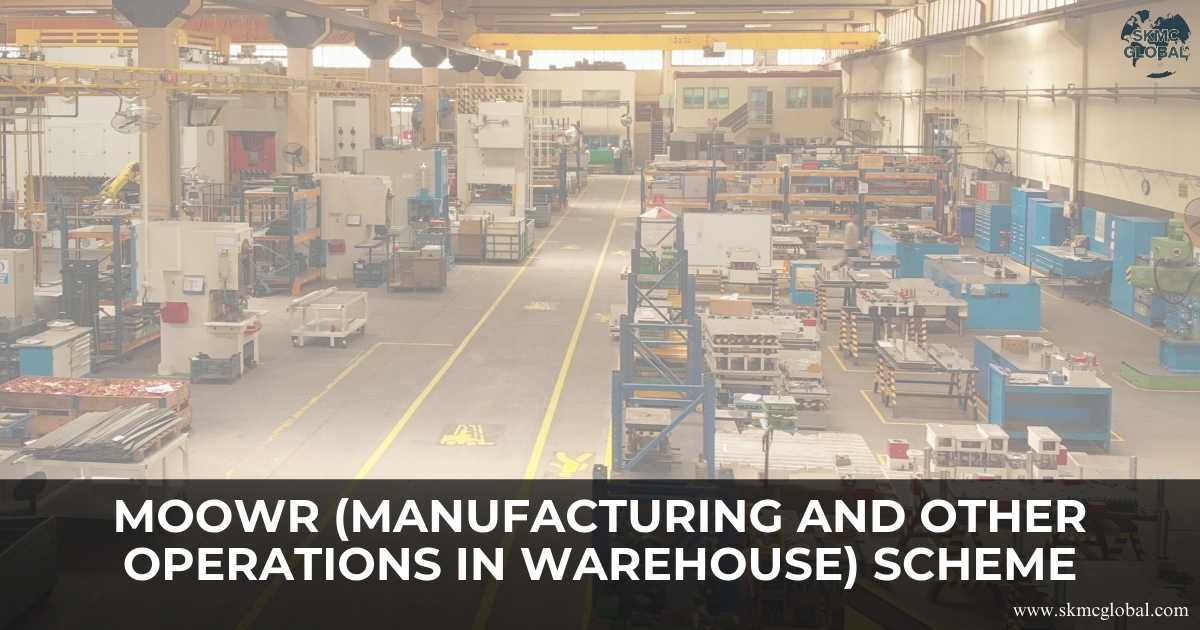 MOOWR (Manufacturing and Other Operations in Wareh...
Sep 24,2025
MOOWR (Manufacturing and Other Operations in Wareh...
Sep 24,2025
-
 Procedure to Apply SCOMET License...
Sep 22,2025
Procedure to Apply SCOMET License...
Sep 22,2025
-
 Landscape of Semiconductor Industry while Doing Bu...
Sep 18,2025
Landscape of Semiconductor Industry while Doing Bu...
Sep 18,2025
-
 The Hidden Costs of In-House Accounting v/s Outsou...
Sep 17,2025
The Hidden Costs of In-House Accounting v/s Outsou...
Sep 17,2025
-
 TDS on sale of immovable property by an nri...
Sep 10,2025
TDS on sale of immovable property by an nri...
Sep 10,2025
-
 Setting up a Project Office in India...
Sep 08,2025
Setting up a Project Office in India...
Sep 08,2025
-
 Tax Implication for Transferring NRO Funds to NRE ...
Sep 05,2025
Tax Implication for Transferring NRO Funds to NRE ...
Sep 05,2025
-
 How outsourcing CFO services helps the corporates ...
Aug 27,2025
How outsourcing CFO services helps the corporates ...
Aug 27,2025
-
 Why a Periodical Cash Flow Statement is Necessary ...
Aug 26,2025
Why a Periodical Cash Flow Statement is Necessary ...
Aug 26,2025
-
 What is FATCA and CRS reporting and its difference...
Aug 22,2025
What is FATCA and CRS reporting and its difference...
Aug 22,2025
-
 What are unclaimed TDS Credits and how to claim it...
Aug 21,2025
What are unclaimed TDS Credits and how to claim it...
Aug 21,2025
-
 Digital Taxation is reshaping Tax Nexus Between Ju...
Aug 20,2025
Digital Taxation is reshaping Tax Nexus Between Ju...
Aug 20,2025
-
 Procedure to Take PF Registration and Its Complian...
Aug 18,2025
Procedure to Take PF Registration and Its Complian...
Aug 18,2025
-
 Procedure to take PSARA License...
Aug 11,2025
Procedure to take PSARA License...
Aug 11,2025
-
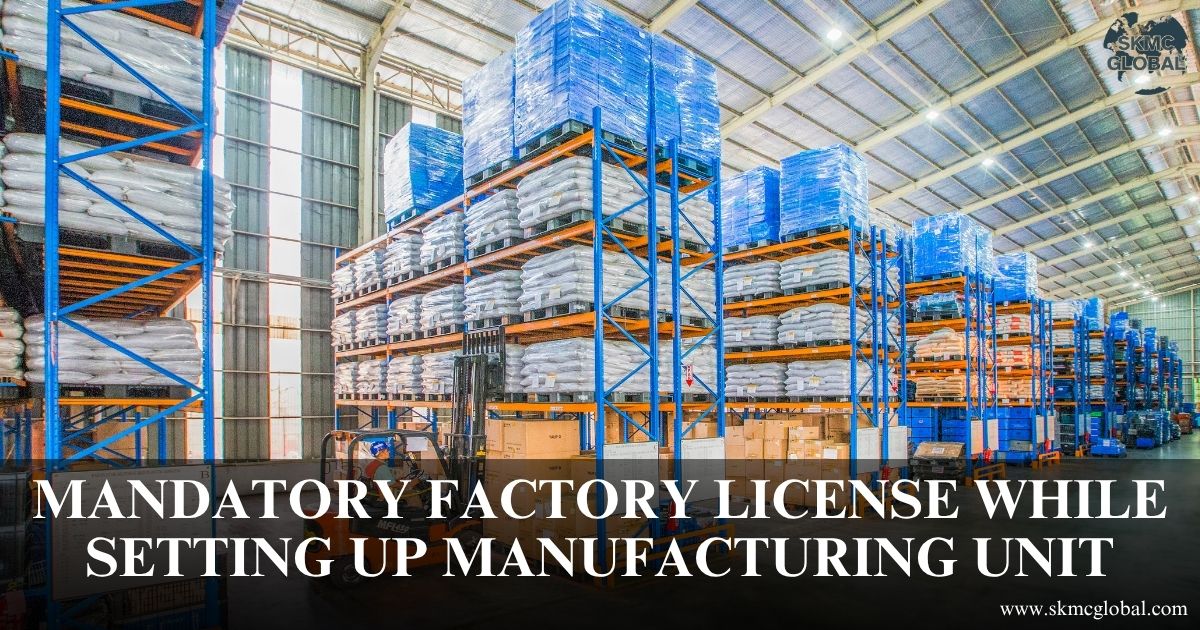 Mandatory factory license while setting up manufac...
Aug 08,2025
Mandatory factory license while setting up manufac...
Aug 08,2025
-
 Procedure for obtaining NBFC Registration in India...
Aug 04,2025
Procedure for obtaining NBFC Registration in India...
Aug 04,2025
-
 FSSAI License registration for Food Business...
Jul 14,2025
FSSAI License registration for Food Business...
Jul 14,2025
-
 How Management Information System (MIS) reporting ...
Jul 11,2025
How Management Information System (MIS) reporting ...
Jul 11,2025
-
 IFRS 9 impairment- A complete guide...
Jul 12,2025
IFRS 9 impairment- A complete guide...
Jul 12,2025
-
 Why most of the companies are shifting to hr and p...
Jul 10,2025
Why most of the companies are shifting to hr and p...
Jul 10,2025
-
 A complete guide on valuation of shares...
Jul 10,2025
A complete guide on valuation of shares...
Jul 10,2025
-
 BIS registration for foreign manufacturer...
Jul 09,2025
BIS registration for foreign manufacturer...
Jul 09,2025
-
 Understanding the Scope of the Shops and Establish...
Jul 08,2025
Understanding the Scope of the Shops and Establish...
Jul 08,2025
-
 Coso framework: Complete guide on internal control...
Jun 26,2025
Coso framework: Complete guide on internal control...
Jun 26,2025
-
 Components and Process for Conducting Internal Aud...
Jun 25,2025
Components and Process for Conducting Internal Aud...
Jun 25,2025
-
 What is ICFR and Why It is Important for Businesse...
Jun 24,2025
What is ICFR and Why It is Important for Businesse...
Jun 24,2025
-
 Understanding WPC Certification and its applicabil...
Jun 23,2025
Understanding WPC Certification and its applicabil...
Jun 23,2025
-
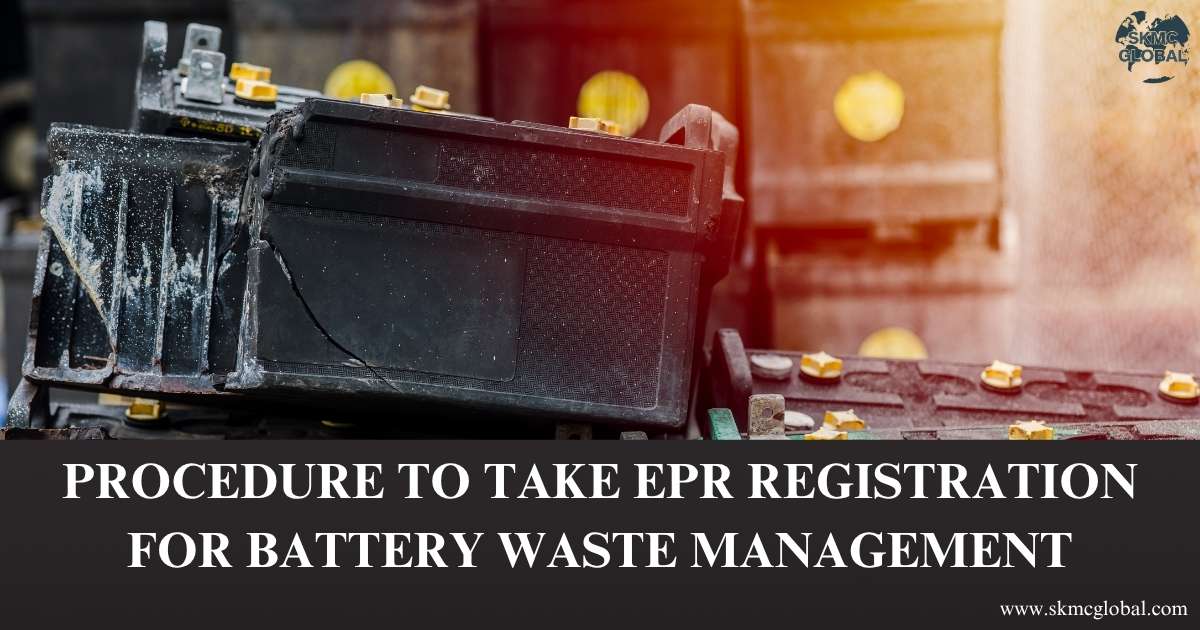 Procedure to take EPR registration for battery was...
Jun 21,2025
Procedure to take EPR registration for battery was...
Jun 21,2025
-
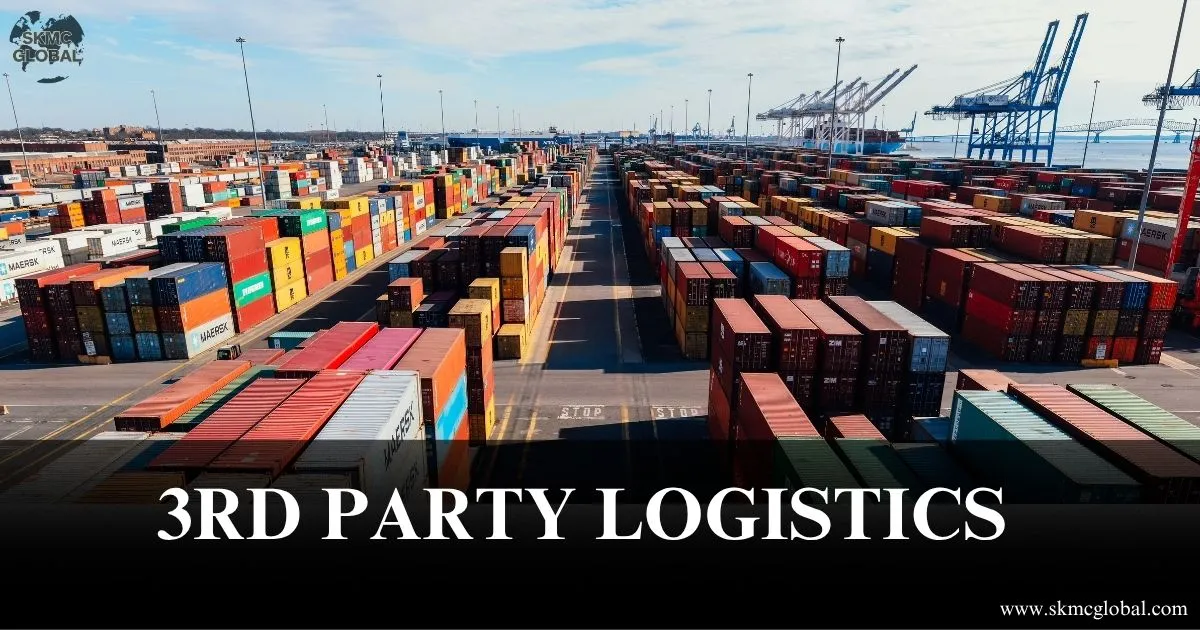 3PL Logistics...
Jun 19,2025
3PL Logistics...
Jun 19,2025
-
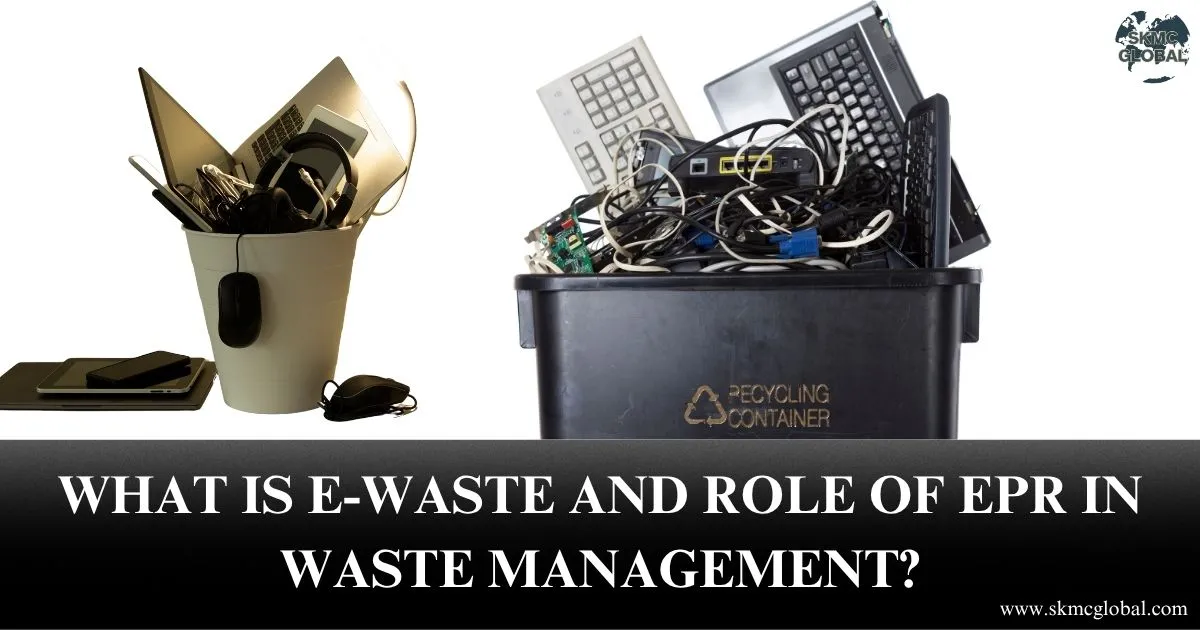 What is E-Waste and role of EPR in Waste Managemen...
Jun 17,2025
What is E-Waste and role of EPR in Waste Managemen...
Jun 17,2025
-
 M&A Due Diligence in India: How to Spot Target Com...
Jun 16,2025
M&A Due Diligence in India: How to Spot Target Com...
Jun 16,2025
-
 BIS crs certification for electronic products...
Jun 12,2025
BIS crs certification for electronic products...
Jun 12,2025
-
 All you need to know about WPC ETA certification f...
Jun 11,2025
All you need to know about WPC ETA certification f...
Jun 11,2025
-
 What is CDSCO Registration under The Drugs & Cosme...
Jun 10,2025
What is CDSCO Registration under The Drugs & Cosme...
Jun 10,2025
-
 Procedure to Take CDSCO Registration in India: A C...
Jun 09,2025
Procedure to Take CDSCO Registration in India: A C...
Jun 09,2025
-
 All You Need to Know About AERB Registration...
Jun 07,2025
All You Need to Know About AERB Registration...
Jun 07,2025
-
 Understanding POSH (Prevention of Sexual Harassmen...
Jun 03,2025
Understanding POSH (Prevention of Sexual Harassmen...
Jun 03,2025
-
 Chartered Accountant's role in financial managemen...
May 23,2025
Chartered Accountant's role in financial managemen...
May 23,2025
-
 5 Things to keep in your mind while running payrol...
May 17,2025
5 Things to keep in your mind while running payrol...
May 17,2025
-
 Why BIS Certification is Crucial for Importers and...
May 15,2025
Why BIS Certification is Crucial for Importers and...
May 15,2025
-
 Top 7 Reasons Indian Entrepreneurs Are Switching t...
May 07,2025
Top 7 Reasons Indian Entrepreneurs Are Switching t...
May 07,2025
-
 Incorporation of Company in Japan...
Apr 24,2025
Incorporation of Company in Japan...
Apr 24,2025
-
 How to set up a Representative Office in Singapore...
Apr 14,2025
How to set up a Representative Office in Singapore...
Apr 14,2025
-
 BIS certificate for medical equipments...
Apr 09,2025
BIS certificate for medical equipments...
Apr 09,2025
-
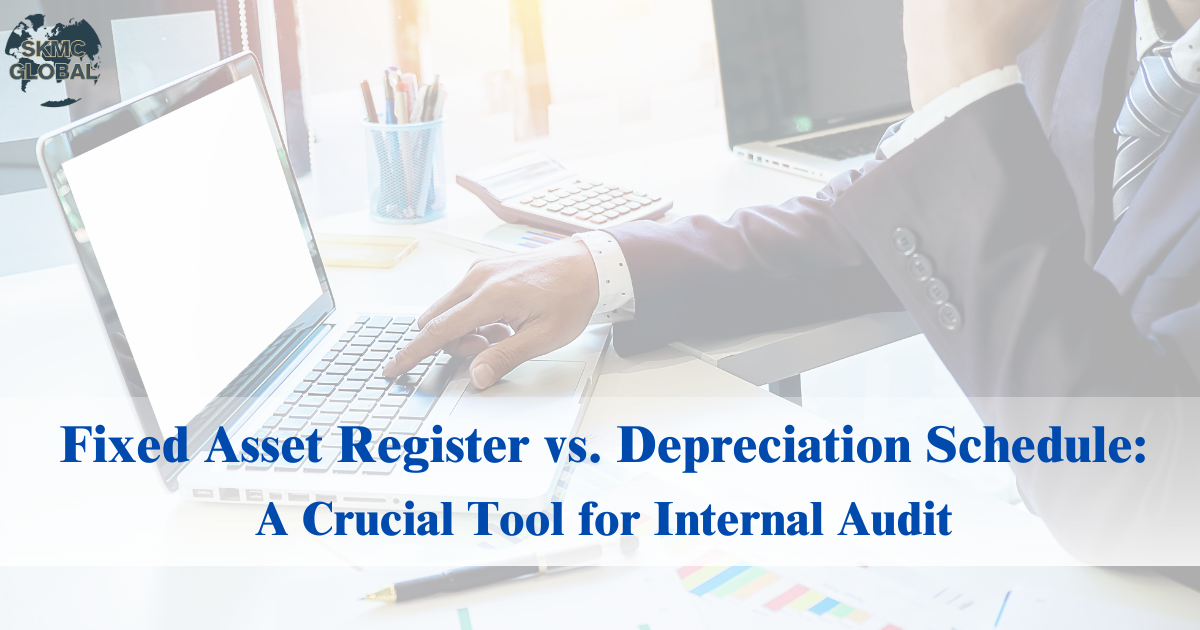 Fixed Asset Register v/s Depreciation Schedule: A ...
Apr 02,2025
Fixed Asset Register v/s Depreciation Schedule: A ...
Apr 02,2025
-
 Role of AI in Accounting...
Mar 26,2025
Role of AI in Accounting...
Mar 26,2025
-
 Capital Structure & its Impact on Profitability...
Feb 21,2025
Capital Structure & its Impact on Profitability...
Feb 21,2025
-
 Union Budget 2025...
Feb 01,2025
Union Budget 2025...
Feb 01,2025
-
 What is EPR in Plastic waste Management? ...
Jul 12,2022
What is EPR in Plastic waste Management? ...
Jul 12,2022
-
 Lithium-ion Battery Recycling Plant Setup in India...
May 10,2022
Lithium-ion Battery Recycling Plant Setup in India...
May 10,2022
-
 Setting up E-waste Recycling Plant Setup...
Jan 12,2022
Setting up E-waste Recycling Plant Setup...
Jan 12,2022
-
 Applicability of Labour Laws in India...
Jul 15,2021
Applicability of Labour Laws in India...
Jul 15,2021
-
 Basis to Outsource Finance and Accounting Services...
Oct 31,2021
Basis to Outsource Finance and Accounting Services...
Oct 31,2021
